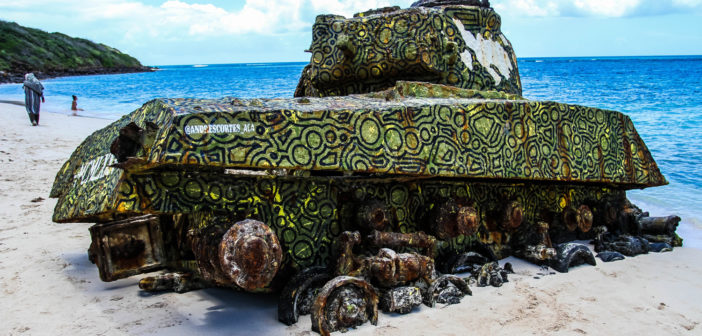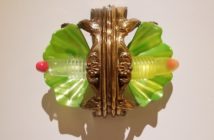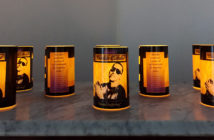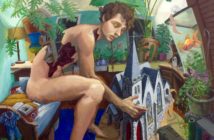On the cusp of its 50-year anniversary, Inquilinos Boricuas en Acción’s Villa Victoria Center for the Arts provides the surrounding community with cultural enrichment. Events, programming, and exhibitions created by the Latino community center their perspectives and ruminations on identity, belonging, and the legacy of immigrant communities in Boston. Pedro Cruz begins the IBA’s autumn exhibits and programming with a show titled Mis Raíces.
A lifelong member of the IBA’s youth programming and currently its Youth Arts Program Coordinator, Cruz endeavors to explore his Puerto Rican heritage and conserve his findings through his photographs. Mis Raíces features a group of photographs from his recent trip to Puerto Rico.
Cruz’s photographs are less portraits of the people of Puerto Rico and more glimpses into the matter-of-fact. A woman sits near a road, cracking walnuts; a veteran sits on a doorstep, smiling; a school-age kid gives the middle finger with a smile that exposes his youthful perception of maturity.
Personal maturation and growth lie at the center of this showing. In his self-authored introductory text, he reports that his last visit was as a teenager—"before I became a man,” he writes. The Villa Victoria Center for the Arts displays the explorations of a mind that now recognizes the impact of cultural agency and learning. His own parents, after all, were the ones who communicated and underscored his heritage to him. As a first-generation American, his parents’ history was close enough to its source to resonate, and he wanted to ring the bell once more.
”Documentarian” is the closest descriptor for Cruz, yet it does not fully describe his role. In these works, Cruz instead seeks to foster a more personal breed of understanding. A trio of photos collectively titled “Mi Amigo” speaks to this earnest desire for connection to his culture. A shirtless man, surrounded by greenery and verdant plant life, grapples with a chain-link fence. They are less subject and photographer, but rather two individuals participating in an honest moment of labor as the worker’s eyes meet the camera lens.
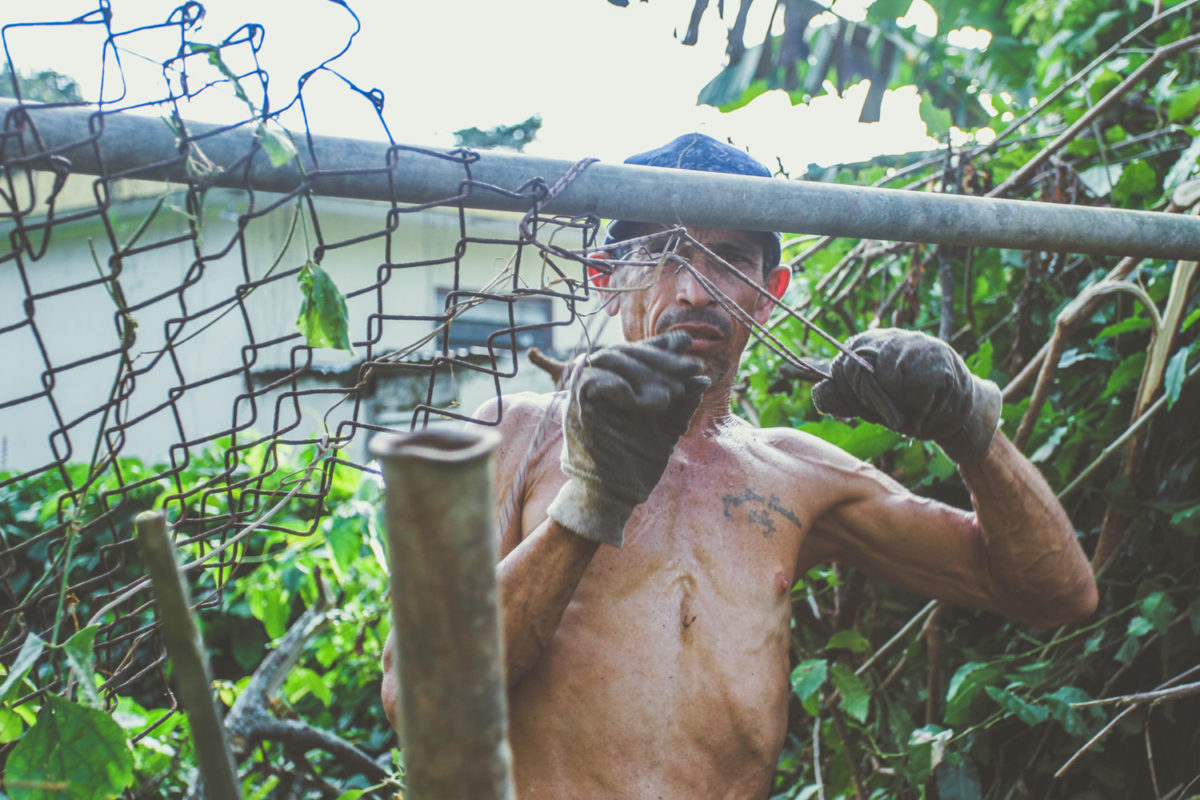
Pedro Cruz, Amigo Mio, IBA's Villa Victoria Center for the Arts. September 1 - September 22. Courtesy of the artist.
He embraces his role as a learner. His self-reflection thoroughly embeds itself in the works. Street scenes of Old San Juan, which are devoid of human figures and presence, yearn for lived experiences and memories—and perhaps he will return with his own family to fulfill that wish. The images of such landscapes interspersed throughout the show disseminate personal, as well as national, histories. A photo of a beached and decorated tank entitled “Culebra” speaks volumes on change and reform as evidenced in the land. While the tank is an object of conflict, the carefully painted metal transforms it into a landmark of public artistic expression.
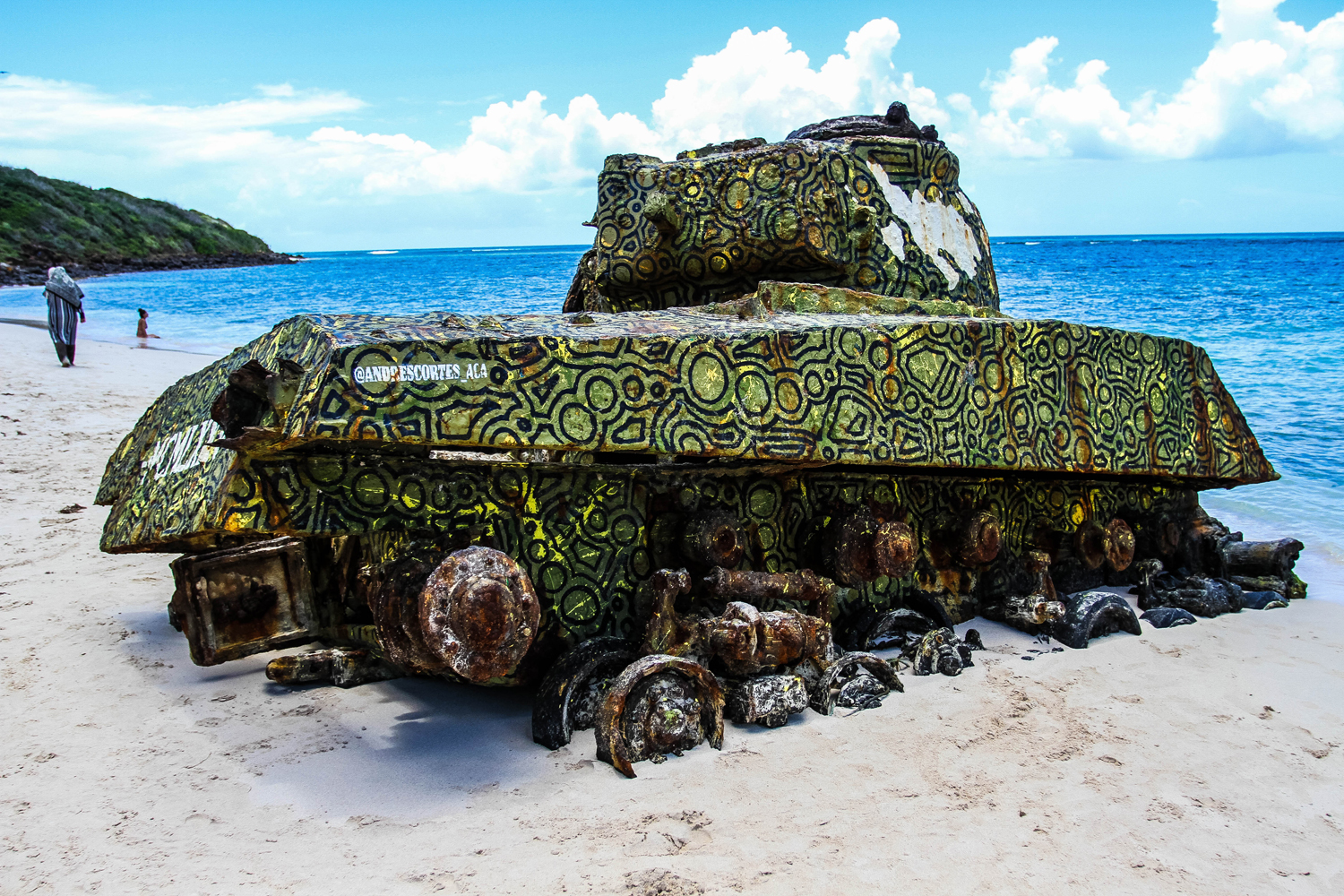
Pedro Cruz, Culebra, IBA's Villa Victoria Center for the Arts. September 1 - September 22. Courtesy of the artist.
These ideas of reclamation also stem from the IBA itself. Founded in the 1960s by a group of Puerto Rican activists, the IBA and connected arts center have a history of staking their claim in a city that increasingly marginalizes and displaces communities. By the same token, Pedro Cruz stakes a claim on his family’s history.
This and other acts of communication and conservation are timely. As I write, Hurricane Irma tears through the Caribbean, fouling the beautiful vistas and landscapes pictured in Mis Raíces. Other showings and events at the IBA reinforce the importance of cultural protection, a responsibility that must extend into conserving our climate and environment.
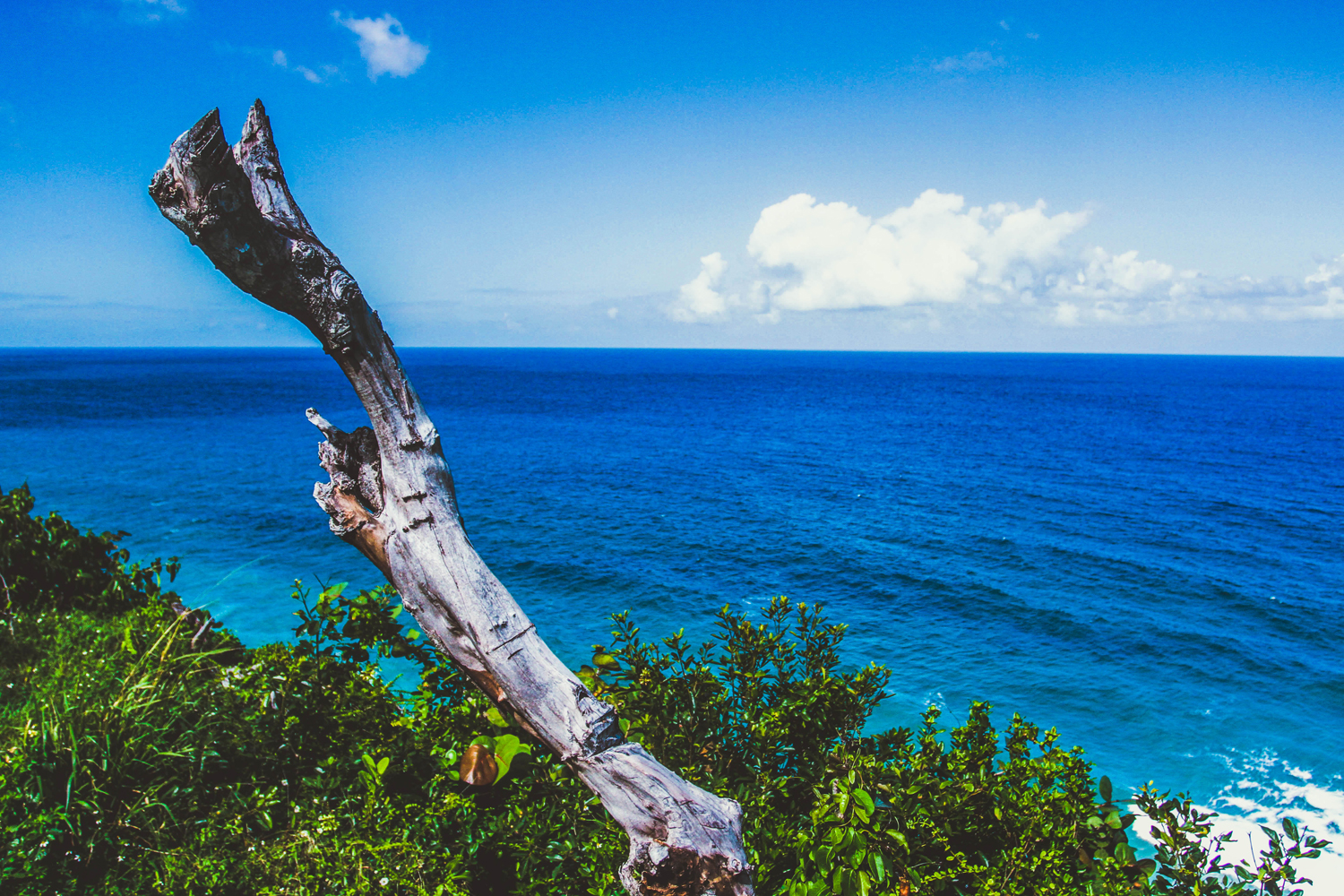
Pedro Cruz, Paraíso, IBA's Villa Victoria Center for the Arts. September 1 - September 22. Courtesy of the artist.
Landscapes house and feed culture. For those in their home countries and those in new communities fostered , images and stories of home grant a sense of self and place to families nurtured on new soil, as evidenced by Cruz’s narrative. He writes of “tracing the steps of [his]parents” in Puerto Rico, and “experiencing the land they had left behind…” for his own sake and for the audience to explore, contributing to the larger conversation on Puerto Rican culture in Boston.
Ultimately, the Villa Victoria Center for the Arts’ mission underscores this responsibility by galvanizing artistic communities. With these calls to action, culture is preserved and shared.
The Villa Victoria Center for the arts is free and open to the public. Mis Raíces will be on view until Friday, September 22nd.

